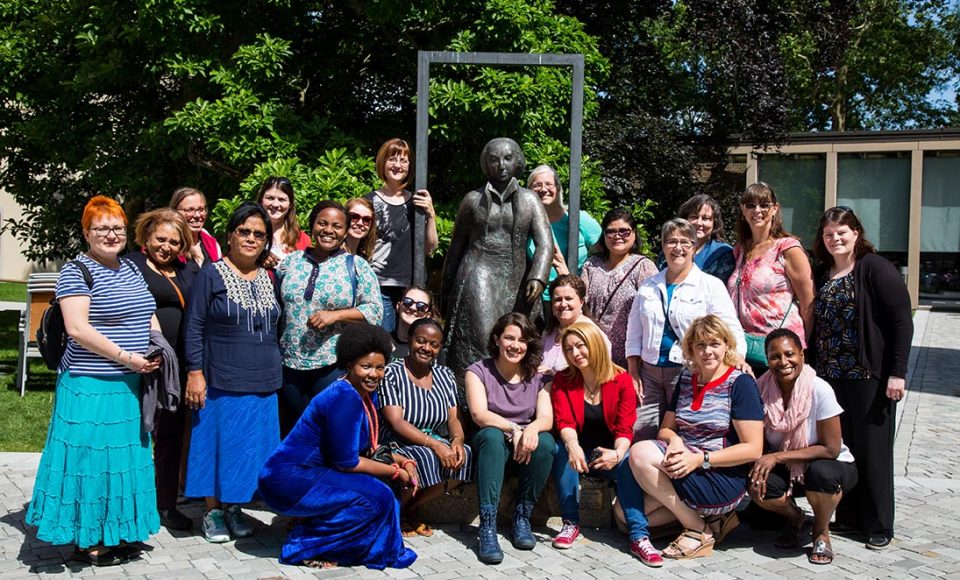This International Women’s Day (March 8), we stand at a critical moment in history. Church and society have made great strides in universalizing human rights, while simultaneously continuing to divide God’s people from each other.
I work in and among U.N. leaders as a program director with the Lutheran Office for World Community. In debates on global challenges, I frequently observe people seemingly left out of consideration, ignored or, at worst, intentionally marginalized. Daily I hear heartbreaking stories of violence against women and girls due to war, violence and poverty. Yes, in 2019 there are still barriers to women’s education and economic improvement. Discriminatory laws and policies, sexual and gender-based violence, workplace harassment and gender stereotypes continue here and around the world.
This issue is deeply personal for me. I am a product of the Lutheran church, and now a global women’s rights advocate. I was born and raised in Kenya, where I organized activities rallying for women’s rights in the church and community. I quickly learned that education and training are foundational to the development of girls and women because they harness and sharpen one’s abilities to seek a better future.
The ELCA has a rich history of standing up for and supporting women and girls, particularly in education. I experienced this firsthand as an ELCA scholarship recipient. This scholarship enabled me to achieve my ambition of earning a college education. My education has helped me hone my community-organizing skills and equipped me to keep advocating for women’s rights.
As Lutherans, we are called to use our prophetic voice for gender justice.
The theological foundation of this church calls its members to continue supporting education for international women. We must fight to ensure women and girls enjoy their fundamental human rights and freedoms. We must end gender-based violence and discrimination. We must raise a rallying cry when women are killed by their intimate partners, when women human-rights defenders are killed for standing up for gender justice, and when schoolgirls, like those in Chibok, Nigeria, are abducted just for seeking an education.
Furthermore, this church must support women’s participation in decision-making processes at all levels, especially at the congregational level. It is no secret that women are the pillars of most congregations. Advancement of women is crucial for the church’s sustainability, now and forever.
As Lutherans, we are called to use our prophetic voice for gender justice. We also have tools like the Lutheran World Federation Gender Justice Policy, which calls all member churches to put the policy into action and practice and mainstream gender justice in all we do. We also have many resources through the ELCA Justice for Women Program and Women of the ELCA. We are working toward a social statement on women and justice, which will be considered at the 2019 ELCA Churchwide Assembly.
It is important to note that gender justice is not only women’s work. Our male allies need to get involved too. So, on International Women’s Day and every day, let us remember that God calls us to strive for gender justice. And, as my Liberian sister Leymah Gbowee, once said, “Be bold. Step out. And never walk on tiptoes, because anyone who walks on tiptoes can never leave footprints for [other] people to walk in.”
Take action
This International Women’s Day, ELCA congregations are invited to learn about the International Women Leaders initiative, which supports women in the ELCA’s global-companion churches through educational opportunities. To support this initiative through prayer, advocacy and financial gifts, click here.




